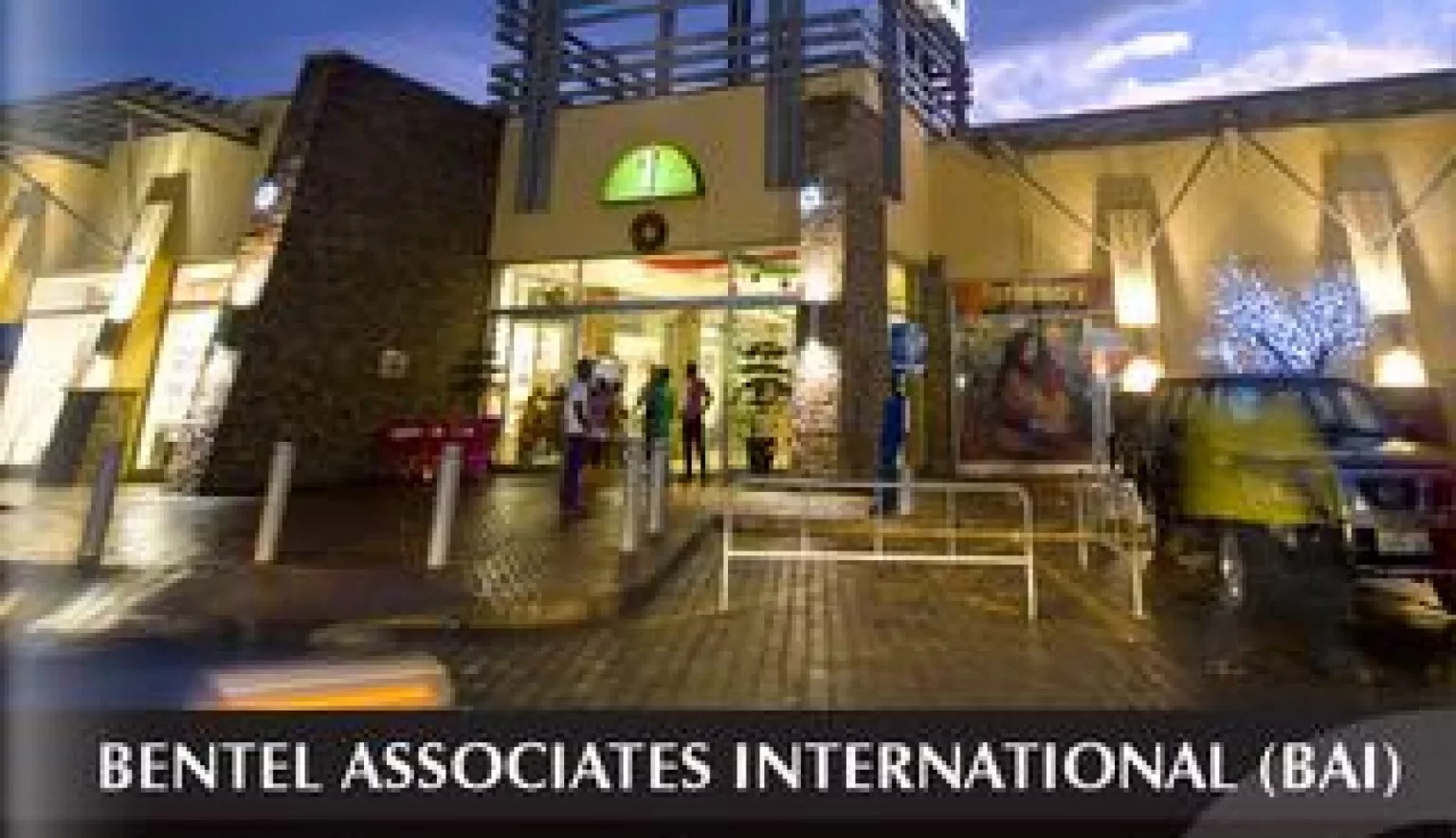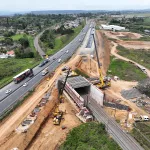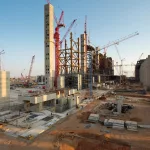Responsible for some of Africa’s landmark developments, leading architectural firm, Bentel Associates International (BAI) is now looking to showcase its portfolio of construction excellence beyond the continent, leveraging its extensive experience of emerging markets to explore opportunities across Asia and the Middle East.
LANDMARK ARCHITECTURE IN AFRICA
Founded in 1960 the Company quickly gained traction in its native market of South Africa, learning how to capitalise on the infrastructural growth being witnessed over the course of the past 55 years. To reflect this gradual evolution, the Company changed its name to Bentel Associates International and now stands tall as one of Africa’s largest architectural firms known for landmark developments in South Africa and other key stable markets across the continent.
“Throughout our history, we have been involved in all types of commercial-orientated projects, but while we don’t want to only be recognised for being a specialist in one sector, there has been a recent development focus in the past 10 years on mixed-use developments and we are currently capitalising on this market trend,” comments Tim Harlech-Jones, Business Development Director (BDD) of Bentel Associates International.
“The Company is a pioneer of shopping centre design in South Africa, and retail has since mushroomed into a significant part of our business today across the continent. We have influenced a significant number of landmark and award-winning retail and mixed-use project designs through our complete service offering: architecture, master planning, store planning, interior design and graphic design,” he adds.
NEW CAPITAL
The proliferation of new capital combined with a strong pipeline of projects coming from outside of South Africa has served to bolster the growing international presence of Bentel Associates International, becoming an architectural leader on the world stage. In line with this, the Company opened its second head office in Mumbai, India in 2004 as part of a continuous growth plan to access emerging infrastructure markets in developing countries.
“In support of our own growth, foreign investors are currently showing interest in Africa, with East Africa in particular becoming an investment hotspot as of late. As these companies look for partners in Africa, we find they are being referred to us as a result of our reputation and portfolio.
“Currently from our Indian operations, just over half of our business is coming from outside of the country, from the likes of Iran, Saudi-Arabia, Qatar and Bangladesh. By leveraging both our brand and geographic locations, we are able to infiltrate these emerging markets,” highlights Harlech-Jones.
As a consequence of a successful 11 years of operations in Mumbai, BAI is now analysing the benefits that setting up a base in Middle Eastern markets could bring business prosperity.
ANCHOR FOR DEVELOPMENT
Deciding how best to use a development space and create the most relevant design is something that varies from country to country on the African continent. However, one factor that remains a prominent trend outside of South Africa is the demand for retail developments as Harlech-Jones explains: “Through BAI’s master planning, we are able to look closely at the macro-economic factors that attract people to the area of new development. Together with our expertise and experience in the fields of architecture and master planning, we are able to design higher yielding assets for our clients, than our competitors. These developments work on all levels and provide for spaces that are well-designed, and that people enjoy and feel comfortable in, making it an easier play to on-sell as a sought-after development. This will essentially future-proof the development for our client.
“Once the design is master planned, retail typically acts as the anchor for these developments; and it is quite common for us to be asked to expand the project and provide further value-add offerings such as additional office, residential and hospitality offerings to complement the development.”
Through a symbiotic relationship with the client, BAI makes sure its projects are strategically placed to create a building that will benefit the local area. “Given that mixed-use and retail developments occupy such large portions of land, we have to make sure to work closely with our clients to come up with the best use of the space and a design,” he notes.
In South Africa however, a more mature commercial and retail market has dictated the requirement of a decentralisation strategy where densification begins to play a more pressing role. “Although there is still demand for individual office blocks and retail facilities, decentralisation in South Africa is driving investors to look for new mixed-use opportunities in less built-up areas and other decentralised nodes,” Harlech-Jones says.
INDUSTRY FIRSTS
Bentel are among the forerunners in West Africa when it comes to retail developments, often being a key part of instigating industry firsts. In 2005, the Company finished the first major formalised shopping centre development in West Africa, The Palms in Lagos, Nigeria; located on a 45,000 square metre plot of land with 21,000m2 of lettable retail space. Three years later in Ghana, Accra Mall was commissioned and became the first large-scale shopping centre in the country. Moreover, completed in 2012, Manda Hill, a 44,000m2 shopping mall in the heart of Lusaka, remains among one of the largest shopping centres on the African continent.
“We will continue working across West Africa, with a particular focus on mixed-use to mirror the ongoing trend at the moment to capitalise on more efficient use of a denser space; where the anchor project is retail, and the decision to bolster on other elements is taken at a later date,” detailed Harlech-Jones.
In South Africa, Bentel Associates International has been responsible for a wide variety of iconic buildings over the years, with standout designs including Nelson Mandela Square and Monte Casino in Sandton; handling a diverse range of projects of different sizes.
He continues: “We are currently working on several mixed-use and retail projects across Durban, Pretoria and Johannesburg. Here, we are aiming to set ourselves further apart in terms of sustainability with phase three of our Illovo Edge commercial development, achieving a top tier green star building rating from the Green Building Council of South Africa (GBCSA).”
After proving itself in these countries, Bentel has been chosen to work on many other projects across the commercial and residential sector, including affordable housing projects in Zambia, Mozambique and Kenya; commercial projects in Ghana and Uganda, and also mixed-use developments in Ghana and Nigeria.
“In Lusaka, Zambia, we have recently completed phase one of a mixed-use development; a 27,000m2 retail space complemented by a hospitality offering and an office block. Phase one has been very successful and we are now looking to expand it in phase two for our client, which will double the size of the development,” he confirms.
FUTUREPROOF
Essentially, BAI’s portfolio has been a way of future-proofing its position on the continent. Harlech-Jones highlights: “Overall the African market is dynamic, and at the moment we are active across Botswana, Namibia, Kenya, Tanzania, Mozambique, in addition to the above. Furthermore, Rwanda, Angola, Cameroon, Sierra Leone, DRC are all potential future markets that are opening up to infrastructure developments that we can offer our service.”
Backed by an award-winning portfolio of projects spread across the world’s emerging markets, BAI has been consistently recognised on an international scale for its achievements across the commercial and retail space. With a clear aspiration to become a leading architectural Company in not just Africa but in all emerging markets, the Company continues to prove itself and deliver landmark projects with innovative flair.


























